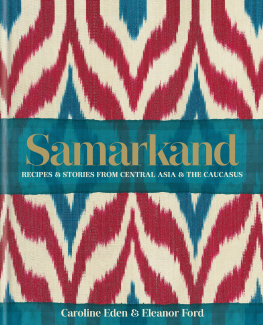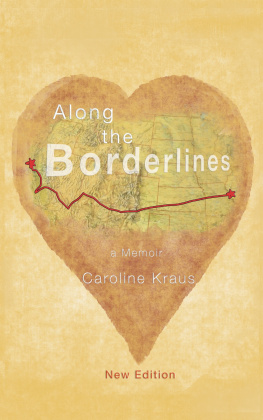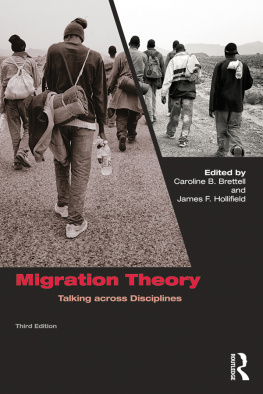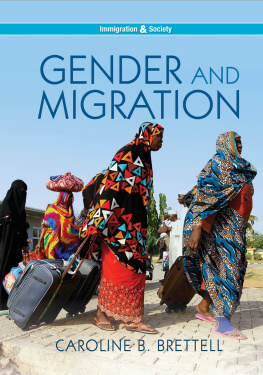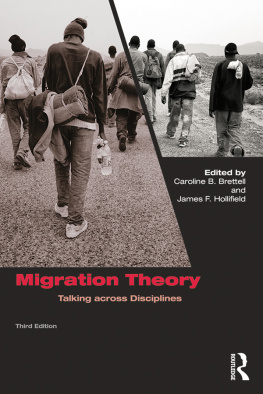Stanford University Press
Stanford, California
2012 by the Board of Trustees of the Leland Stanford Junior University. All rights reserved.
No part of this book may be reproduced or transmitted in any form or by any means, electronic or mechanical, including photocopying and recording, or in any information storage or retrieval system without the prior written permission of Stanford University Press.
Printed in the United States of America on acid-free, archival-quality paper
Library of Congress Cataloging-in-Publication Data
Brettell, Caroline, author.
Civic engagements : the citizenship practices of Indian and Vietnamese immigrants / Caroline B. Brettell and Deborah Reed-Danahay.
pages cm
Includes bibliographical references and index.
ISBN 978-0-8047-7528-1 (cloth : alk. paper)--ISBN 978-0-8047-7529-8 (pbk. : alk. paper) 1. East Indian Americans--Political activity--Texas. 2. Vietnamese Americans--Political activity--Texas. 3. East Indian Americans--Texas--Societies, etc. 4. Vietnamese Americans--Texas--Societies, etc. 5. Immigrants--Political activity--United States--Case studies. 6. Immigrants--United States--Societies, etc.--Case studies. I. Reed-Danahay, Deborah, author. II. Title.
F395.E2B74 2012
323.119140764--dc22 2011015777
Typeset by Bruce Lundquist in 10/14 Minion
E-book ISBN: 978-0-8047-7898-5
Preface and Acknowledgements
This book is the result of a five-year research and writing collaboration that began in 2005. At the time we were both living in the Dallas-Arlington-Fort Worth (DFW) area, before Deborah moved to Buffalo, New York, in the summer of 2006. Before our respective moves to Texas, we had known each other for several years through our mutual interests in the anthropology of Europe and the anthropological study of narrative. When we started this project, Deborah had just published a book on Pierre Bourdieus work and was completing some other work on education and the European Union and on rural French narratives. Caroline was ending her involvement in a large interdisciplinary collaborative project on immigration in the DFW region that was launched in 2001 with funding from the National Science Foundation (NSF). We were both at the point of deciding what to do next. In some discussions, Caroline expressed interest in doing a more ethnographic study of immigration than her previous one and in addressing, with an anthropological eye, some dimensions of the political incorporation of new immigrants. Together we developed a plan for an ethnographic study of the civic engagement of Asian immigrants in DFW, with Caroline bringing her expertise in studies of immigration in Canada, Europe, and the United States, and Deborah bringing her expertise in political anthropology and anthropology and education, in addition to perspectives from her prior work on internal migration in France. Although Deborah had not previously conducted any work on immigrants in the DFW region, she had supervised thesis work on refugees and was serving on the advisory board of a refugee agency in Fort Worth. Because Caroline had already worked closely with Indians in the broader DFW-area immigration project, she decided to choose that group for her focus. Because of Deborahs background in the anthropology of France and her familiarity with the history of Vietnam through studies of French colonialism, it seemed a good fit for her to work with the Vietnamese population. These two groups were also the largest Asian newcomer groups in this region of Texas.
We developed grant proposals, targeting in particular the Russell Sage Foundation by responding to their call for proposals. We are profoundly grateful for the three years of funding provided by this foundation. Without it we could not have completed the work.
In the introduction to this book, we discuss our research methods. Here we touch on the collaborative dimensions of research and writing, something rare for anthropologists, who are often more comfortable as lone ethnographers in the field. At the end of this preface we speak in our separate voices to acknowledge those who have supported us in this work.
Our collaboration in writing began when we drafted the grant proposals to launch the research. Our technique, which continued as we worked on the book, involved initial discussions on what needed to be done, how we might approach the work conceptually, and what would be the division of labor and the timetable for task completion. As we started to write the book, we met together in Dallas, often at Carolines house, when Deborah was back in town to finish up her research among the Vietnamese. We had developed the research project jointly and we kept in touch during the work as we went into different phases of it, but essentially we worked on parallel tracks and therefore needed to meet toward the end of each phase and see what our findings had been and how we could develop our comparisons. This was an evolving process, as we both sifted through our notes, interviews, and secondary sources. As is typical in ethnographic studies, much of the substantial information we each collected did not make its way into this book, so we are each also publishing some of the work separately.
In the middle of completing the research and beginning the book, we were invited to present our work at a Russell Sage conference on immigration and civic engagement organized by Karthick Ramakrishan and Irene Bloemraad. We want to express our gratitude to them for providing us with this early opportunity to begin writing together. Our paper from this conference was published in Ramakrishnan and Bloemraad (2008a) and also became the foundation for Chapter Four of this book. At about the same time, we organized a session for the annual meeting of the American Anthropological Association that focused on processes of political engagement and citizenship among immigrants in Europe and the United States. This session resulted in the book Citizenship, Political Engagement, and Belonging (Reed-Danahay and Brettell 2008a). We are grateful to all of the authors who contributed to that book for their excellent work and for the lively exchange of ideas that the project generated.
Once the research was completed and we had decided on an outline of chapters for the current book, we developed a modus operandi for writing. One of us would start a section of whatever we were writing and then pass it to the other for further workwhich often included inserting material from her research, adding to the literature review, or further developing a conceptual framework or argument. The chapters in this book have been handed back and forth so many times that we have lost count of all the versions, but there have been at least ten for each chapter! Our original plan for the book was also revised and shaped through this back and forth process. Sometimes, writing together involved compromises between different styles and ways of thinking (when one of us would need to open up to the others point of view on a particular approach), but many times our exchanges would take the form of appreciation for the others insights that enriched the growth of the book and the formulation of key arguments. Sometimes one persons way of framing an argument stimulated the other to go back to her data and rethink it, all with the goal of developing the comparisons and producing a better and more unified book.
We spent an entire day at the American Anthropological Association meetings one year working side by side and reviewing a complete draft with critical eyes. The next year we met again to review and edit a second draft. The process took much longer than we had expected because of the challenges of writing with one voice and producing rigorous and balanced comparisons. We are both very grateful to external reviewers of this manuscript for the suggestions and critiques that helped us to produce the final version. We also want to thank Stanford University Press and, in particular, Joa Suorez, for her commitment to this project and for her excellent editorial guidance along the way. It has been a true pleasure to work with her.




